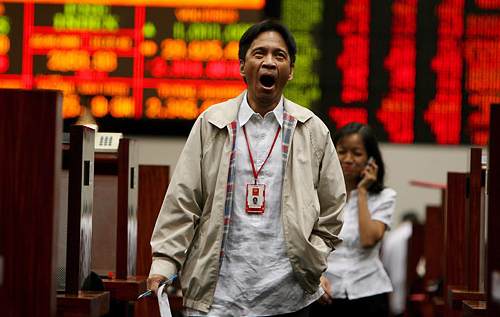Healthy feelings, and an effective way of managing these, can turn out very critical in such a highly primed environment as the stock market.
IT IS easy to believe that health issues are off-limits in the “unemotional world of finance.” But if you had been into the stock market, it will not take long to see that people connected to it—brokers, market makers, dealers, and investors—are nothing but.
Well, that depends on your investment strategy. Stock traders who ride on the second-to-second movement of stocks in the Philippine Stock Exchange will experience fear and ecstasy, and shades of these emotions in between, depending on which direction their holdings are moving for the moment. If their stocks came on breaking ceiling prices, they will thank heaven for being born. But when the market hits bottom for many days or weeks, you will hear from news reports that someone came to believe that the top of a high-rise building is just a step away to the streets below.
The emotional intensity blazes the more in international markets where investment dollars abound.
Long-term investors like the legendary Oracle of Omaha, multibillionaire Warren Buffett on the contrary are generally detached from the fast-paced world of Wall Street, the universal moniker of the securities world in the West.
But is emotional intensity a crucial factor in investment decision makings?
Well two investigators, both educated at Boston College, took the question on in a study involving 118 members of six investment clubs in northeastern United States with an average stock investment experience of 4.3 years and still actively investing. Around 80 percent of these volunteers are male.
Myeong-Gu Seo and Lisa Feldman Barrett found out that... [READ MORE]
This article appears in SunStar Cebu newspaper on 11 January 2012

Comments
Post a Comment